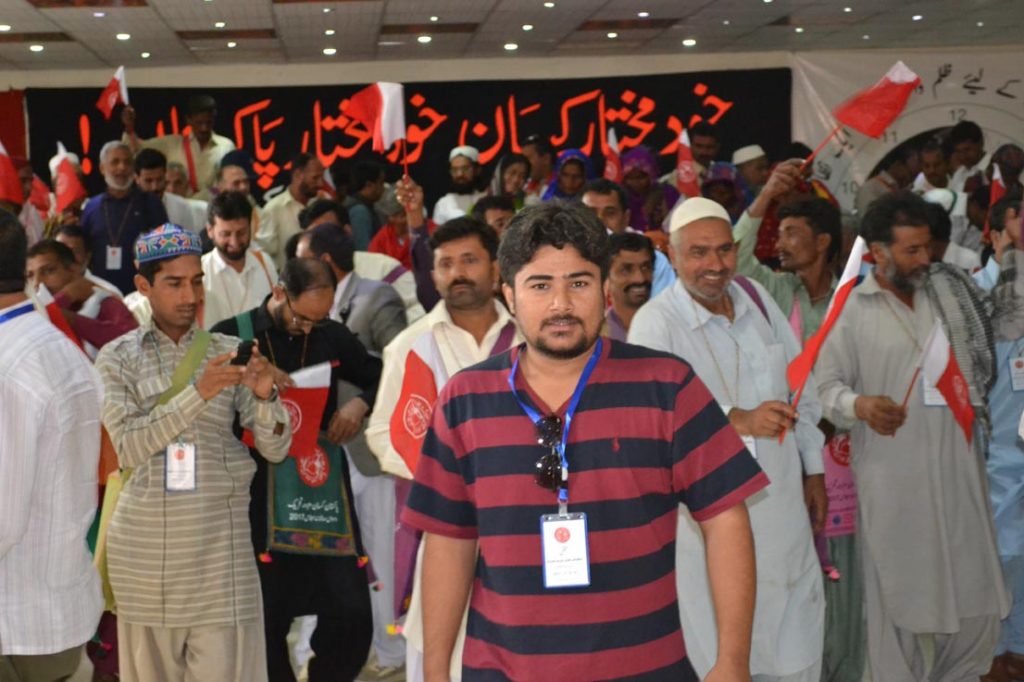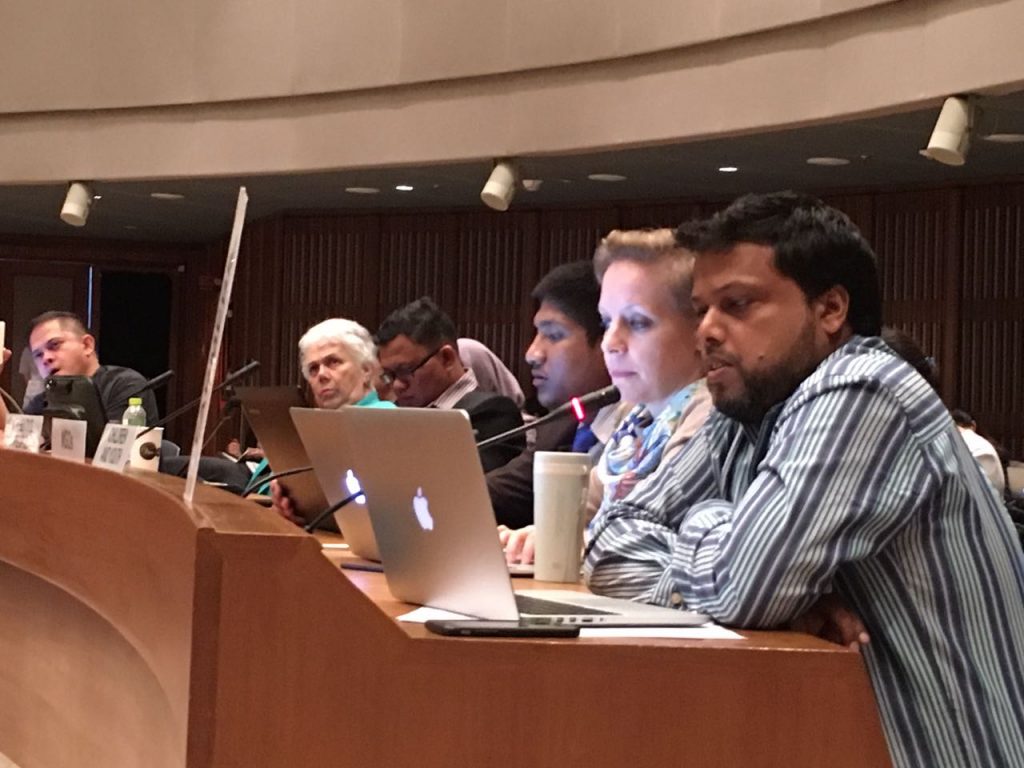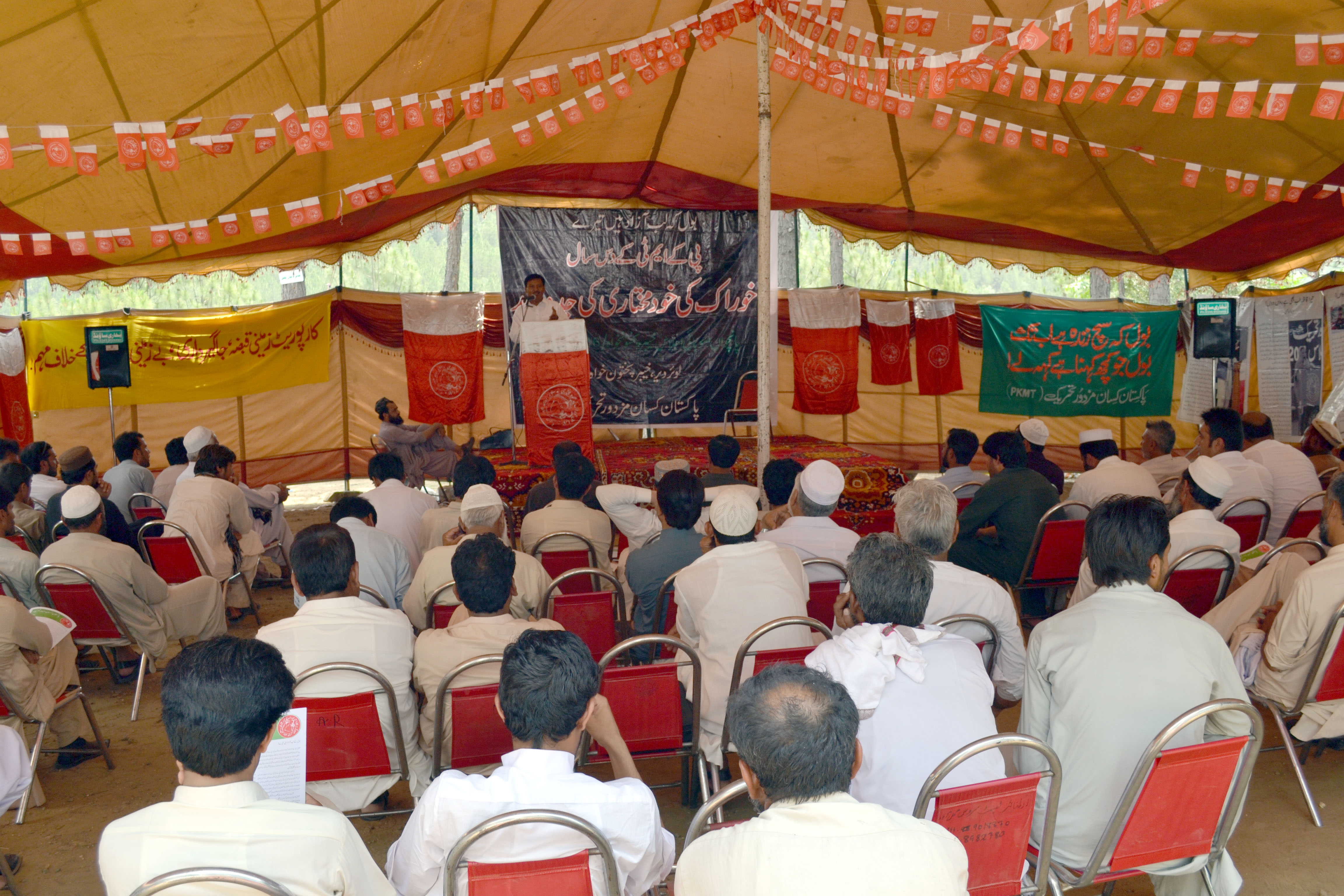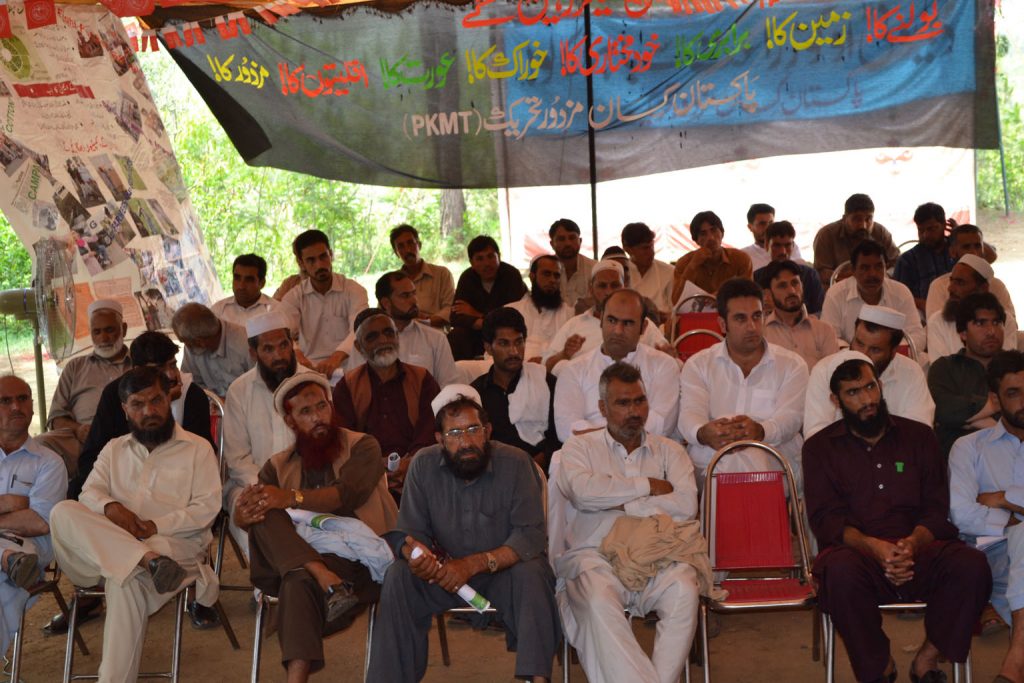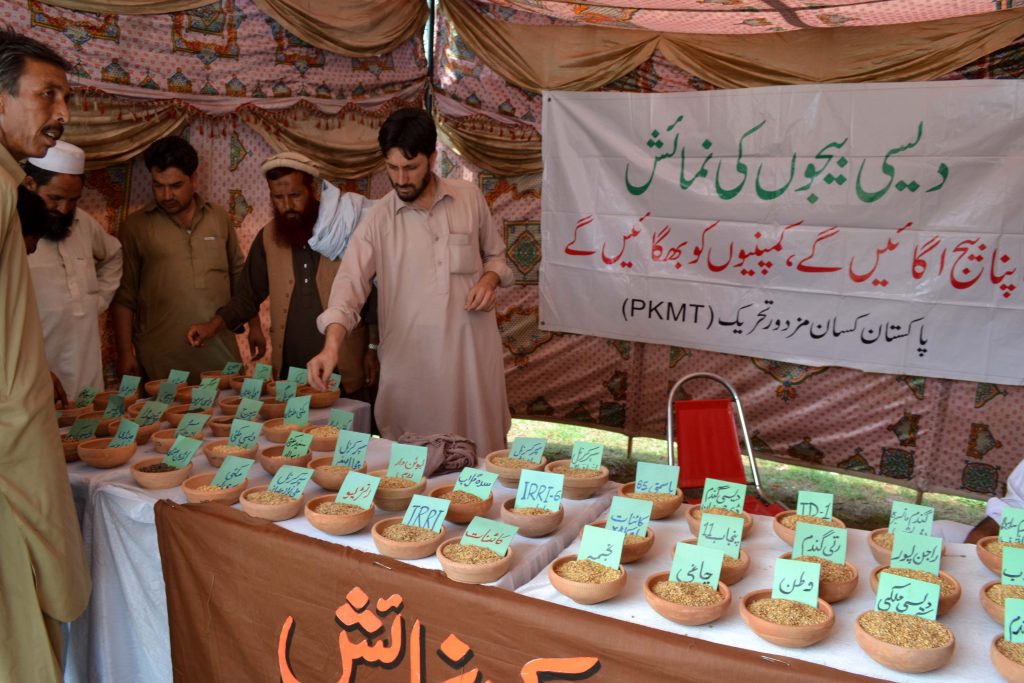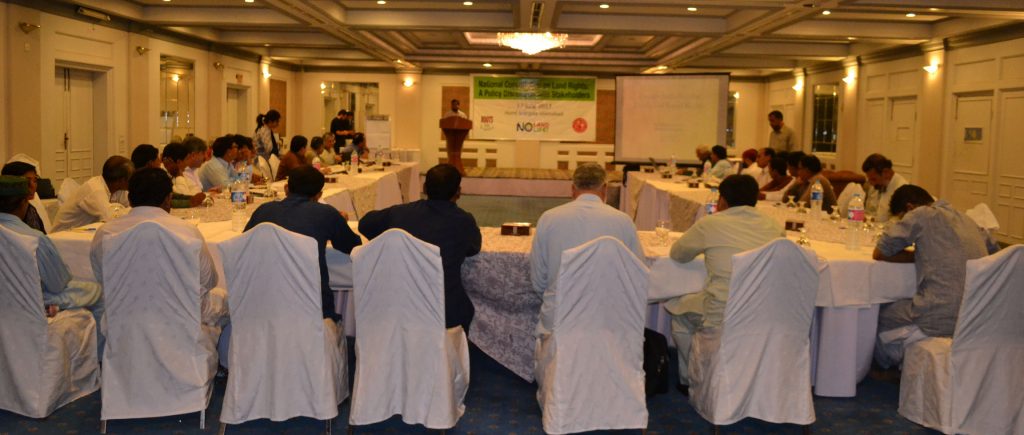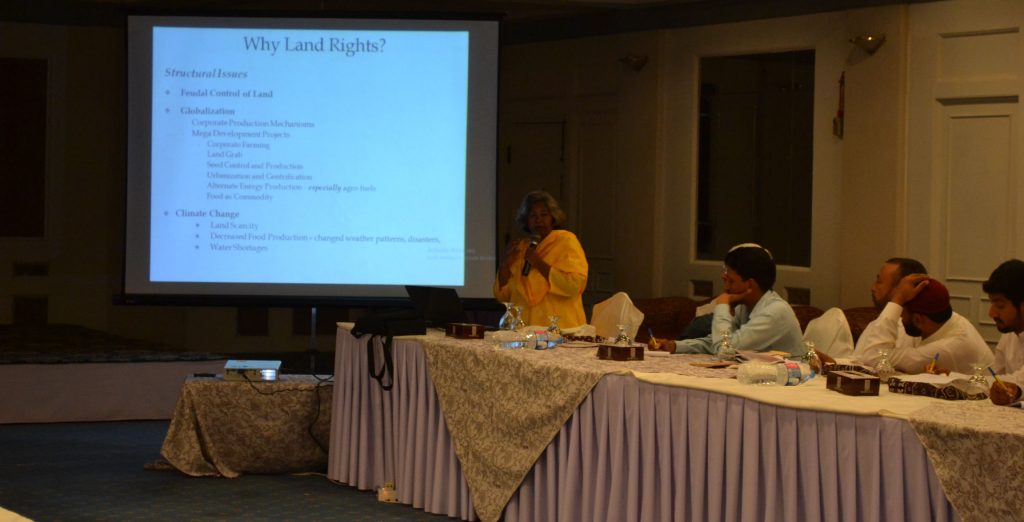Press Release
The State of Food Security and Nutrition in the World Report 2017 jointly released by FAO and other intergovernmental agencies have highlighted some shocking information: people suffering from hunger and malnourishment have risen from 777 million in 2015 to 815 million in 2016, of which a vast majority (520 million) live in Asia. Globally, it has also been made evident that conflict and climate change has a vastly negative impact on food security especially for rural communities, and is also a major reason for migration. This is the context of FAO ‘celebrating’ the World Food Day under the theme of “Change the future of migration. Invest in food security and rural development.” In short, millions of people from third world countries are fleeing their homes due to various factors including conflict, hunger, poverty, and a variety of climate change impacts such as floods, droughts, among others. Pakistan, in 2017 continues to be ranked as one of the least peaceful countries: among peaceful countries it ranks 152 of 166 counties.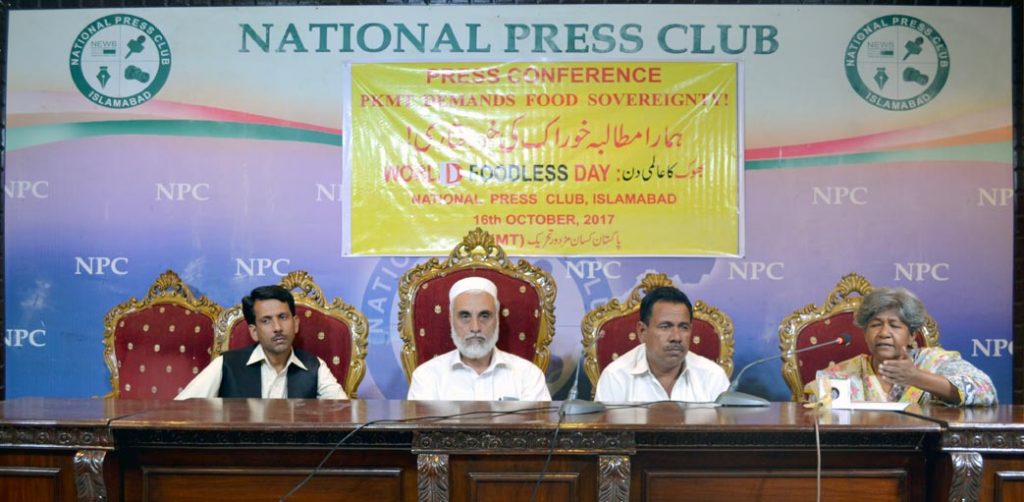
To mark the ever-rising number of hungry in a country which has surplus wheat rotting in state warehouses, millions of Pakistanis are being displaced by state-sponsored militarism and hence losing land, livelihood, livestock – all that are essential for maintaining food and nutrition. Statistics shout the facts: Pakistan ranks 77 in109 countries for food security indicators; of every tenth person, six suffer from food insecurity; almost 44% children suffer from malnutrition where as 50% of women suffer from anemia.
These diabolical figures are a result of extreme oppression and inequity in the country; the most critical being inequitable land distribution. Forty-five percent of land is held by only 11% of big landlords. Millions of small and landless farmers are forced to produce under the exploitative, oppressive conditions of semi-feudalism, and now mounting hegemony of powerful agro-chemical corporations under the capitalist framework of neoliberalism have been allowed to renew colonization of our lands and resources. The multiple impacts of land and resource hegemony, conflict, climate change and destruction of our agricultural lands by intense use of dangerous chemical fertilizers has left the rural communities and urban poor suffering from the vast indignities of hunger and poverty. The concentration of power by the agri-business giants under the auspicious of World Trade Organisation (WTO) and its trade liberalization agreements, especially TRIPs is one of the major structural causes of rising world hunger.
Kissan Mazdoor Tehreek (PKMT) and Roots for Equity held a press conference and a protest at the Islamabad Press Conference, October 16, 2017 to register their protest against the ongoing heinous human rights violations being inflicted through concentrated wealth and control over resources especially land by the feudal and corporate elite in the country. PKMT leaders Altaf Hussain, Tariq Mehmood Pathani, and Azra Talat Sayeed spoke at the occasion.
PKMT calls out to all peoples organizations to increase the struggle for food sovereignty as the way forward to end the joint crippling impacts of semi-feudal and neoliberal policies being employed to plunder the land and productive resources of our people. PKMT demands a food and agriculture policy based on food sovereignty framework with equitable distribution of land, ensuring women’s farmers right to land. There cannot be just and lasting peace, sustainable development and prosperity without a people-led development agenda.
Released by: Pakistan Kissan Mazdoor Tehreek (PKMT)

